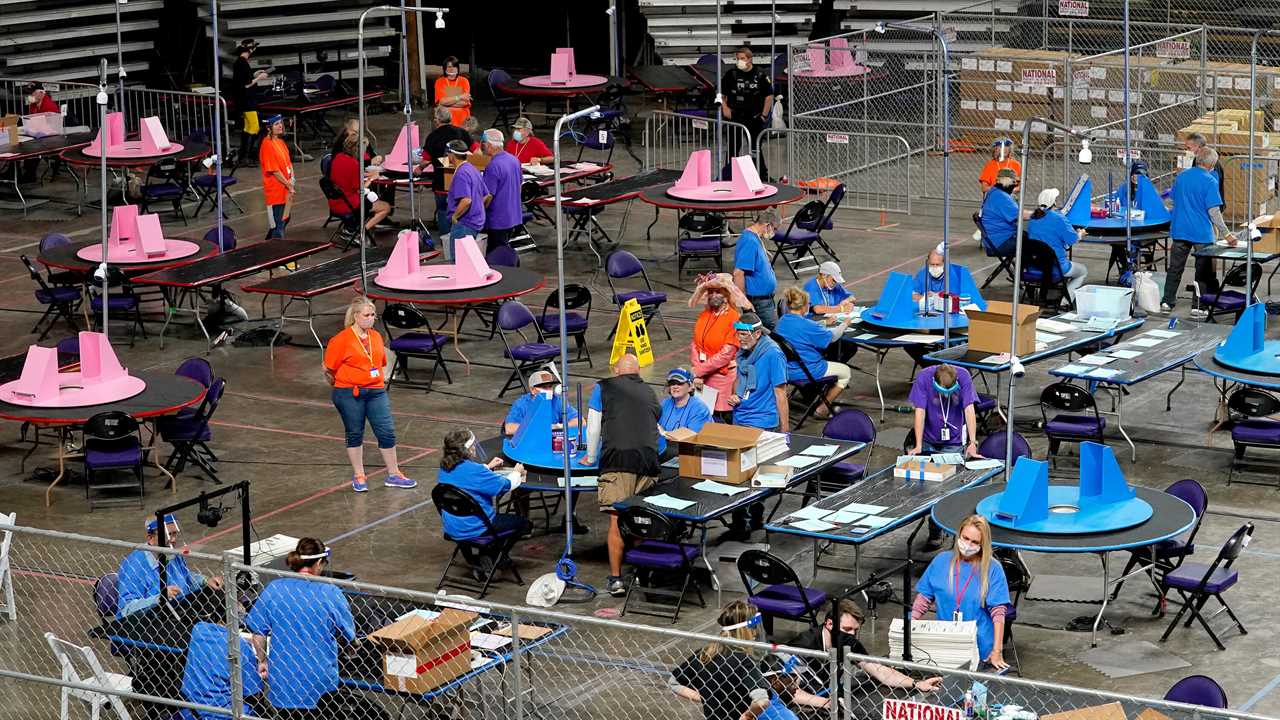
Republicans in the Arizona Senate are expected on Friday to unveil the results of the deeply flawed review they ordered into Democratic election victories last November in the state’s largest county.
The study, conducted by Republican loyalists and conspiracy theorists, some of whom previously had called the election rigged, has long since lost any pretense of being an objective review of the 2020 election. It focuses on the votes that saw President Biden narrowly win the state and elected a Democrat, Mark Kelly, to the U.S. Senate, and its origins reflect the baseless Republican claims of a stolen election.
An Arizona Senate spokesman, Mike Philipsen, said that a public briefing on the findings would be held on Friday at 1 p.m. Pacific time, and that a link to the full report would eventually be posted on the Senate Republican caucus website.
But regardless of the outcome, the effort in Arizona has already inspired copycat efforts in other states. And it has become a way to keep alive false claims of fraud and undermine faith in the 2020 election and democracy itself. In Wisconsin and Pennsylvania, for example, Republican-dominated Legislatures have ordered Arizona-style reviews of the 2020 vote in their states, sometimes in consultation with the same conspiracy theorists behind the Arizona investigation.
“We’re at an inflection point,” said Chuck Coughlin, a Phoenix pollster and Republican political consultant who has been skeptical of the Arizona investigation. “When the results drop, I’ll be curious to see how the Legislature’s Republican leaders react to this, including the State Senate itself.”
Legitimate audits of the vote ordered by the Republican-controlled Maricopa County Board of Supervisors, which oversaw the election, have repeatedly found no evidence of fraud that could have tainted the results. And the inquiry has been dogged from its start by slipshod and sometimes bizarre conduct.
The firms conducting it had essentially no prior experience in election work, and experts said their haphazard recounting of ballots guaranteed unreliable results. Election officials said security lapses raised the risk that voting equipment had been compromised. And some aspects of the investigation — checking ballots for secret watermarks, and for bamboo fibers that would suggest they were printed in Asia — were based on outlandish conspiracy theories.
But the chairman of the Maricopa County Board of Supervisors, Jack Sellers, said that whatever the findings, the Arizona Senate investigation had lent a veneer of credibility to charges of election fraud that will be tough to overcome.
“Anybody who pays attention knows there are no remaining issues” with the November vote, he said. “But it doesn’t seem to take a lot to keep some people having doubts. I’m not sure there’s a cure for that.”






